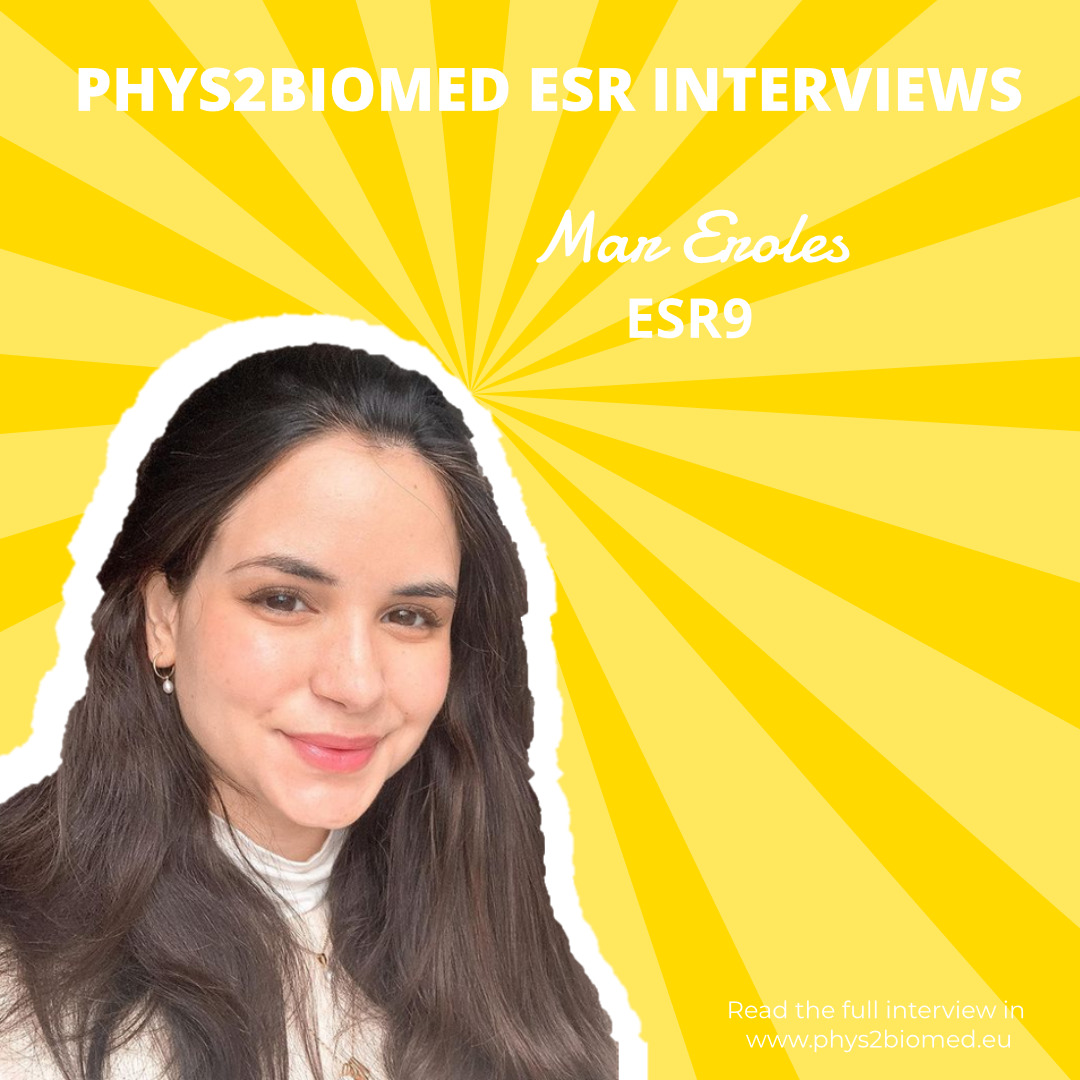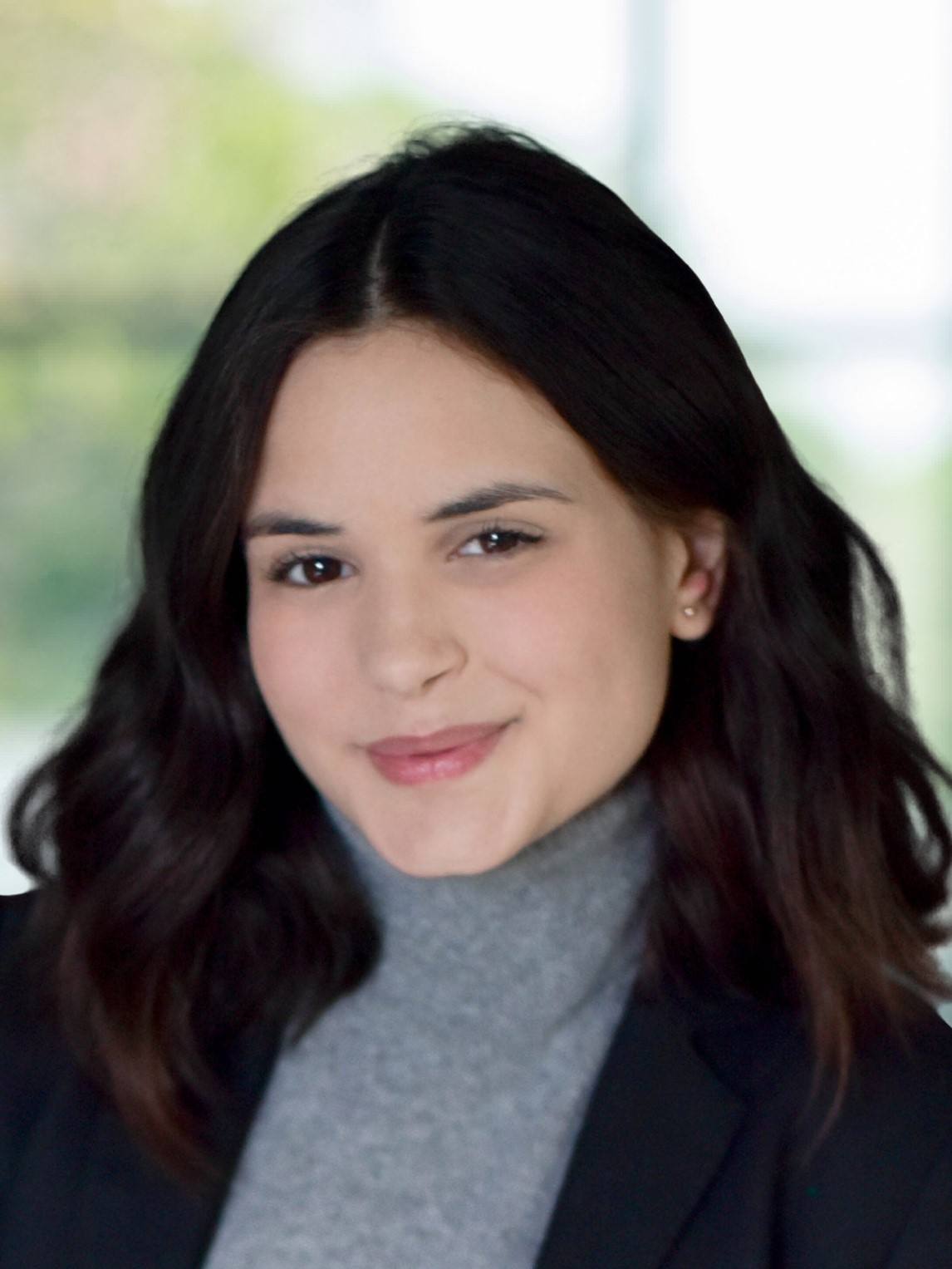ESR9. Mar Eroles Navarro
Short Biographic note
Working hard for something we love is called passion. My life is about passion for innovation.
Mar Eroles is a scientist working towards value based science to the patients, a tech-transfer enthusiast and a learner of everything involved in this field. With a background in biotechnology and neuroscience she spent the late years of her career working with entrepreneurs and financial and institutional players moving forward new technologies to the market.
Founder of Mandarina Capital, former Jury member at the SME Instrument in the European Commission, former General Secretary of AMCES and EMCC Spain, former President of Innovation Forum Barcelona and mentor of several acceleration programs in Europe. Nowadays she is committed to her doctorate thesis in biophysics.
Skype: mar.erolesnavarro
E-mail: mar.eroles@inserm.fr
Project Title
Fast phenotyping of cell mechanics
Start date
1st June 2019
Beneficiary
Objectives
Expected results
Planned secondments
- FAU, W. Goldmann. Correlation between mechanics of cells by AFM grown on micro-patterns of varying size and mechanics of suspended cells using microfluidics (4 months, month 12; 2 months, month 36). 2. OSR, M. Alfano. Preparation and immobilis ation of tissue and ECM (1.5 months, month 20). 3. O11, D. Iannuzzi. Mechanical mapping of cells and tissues using commercial nano-indenter (1.5 months, month 30). Biomeca, P. Milani. Mechanical mapping of cells and tissues using AFM as an external service (1.5 months, month 33).
Interview

Question 1: Where are you from and where are you conducting your research now?
Mar: I am from a small village next to Barcelona, and I am doing my research at the laboratory of adhesion and inflammation with Inserm in Marseille, France.
Question 2: Tell us about your background. (Ex.: Bioengineer with a masters in biomechanics and biomedical devices).
Mar: Oh that’s a complicated one. So I did my bachelor in biotechnology and I hold a master in Neuroscience but before that I did my MBA of biomedical companies and I worked for several years in different roles in the tech transfer industry, mainly consultancy and finance, fostering research and innovation to the market. I also did half a master’s in human resources management with a grant from EAE business school in Barcelona, but I moved to Italy for work, and I could not finish it.
Subquestion: Did you do any internships?
Mar: From my bachelor’s in biotechnology, I did an internship in the analytical chemistry department for one year, where I wrote my bachelor thesis in chromatography. In my masters in Neuroscience, I did an internship in the laboratory of neurotoxicology of the faculty of pharmacology of the university of Barcelona for 9 months, where I wrote my master thesis. Then in the business part I did internships in two companies, but that’s a bit more out of academia.
Question 3: Can you describe your project in one sentence?
Mar: Fast phenotyping of cell mechanics in the inflammatory response
Question 4: What do you think it’s the next big improvement in your field of expertise?
Mar: In AFM at the technical level, it will be automatization and it will be related to increasing the throughput and simplification of the technique. However, it will be difficult to reach the same level as other mechanic techniques, but this will improve the reproducibility, because it is still difficult to get the same results in the same lab even, let alone reproducing experiments in different labs. AFM needs a high level of technical ability and I think it will improve and make things easier and more operable.
Question 5: In your opinion, what’s the best and worst part about academia, especially when it relates to business?
Mar: The best part is that it is an excellent field for creativity and freedom, which you will not find in business or in many other jobs in private companies. At the same time, is limited in career pathways. Your path is already pre-established: you are a PhD, then a postdoc, then a permanent position in A, a permanent position in B, etc. Your career pathway is not very flexible, whereas in business it is very flexible. If you are open, you can work in marketing, legal, human resources, business development, it is very flexible, but of course you will be restricted in terms of creativity and what you want to do because you are working for someone else’s interests. I would add that family-work balance is better sorted out in most of the big companies I know.
Question 6: Why did you choose a research path?
Mar: As I said, I was working in venture capital investing money in new medical companies, but I decided I needed to understand more the scientific innovation on one side and on the other side I felt the need of having my own research project. I was helping all the time scientists that were building companies out of their research and I wanted to have the same experience.
Question 7: Which of your accomplishments are you the most proud of?
Mar: When I was only 23 years old, I was invited in the European commission working as a jury member for European funds. I think this was the biggest recognition of my career as an expert in tech transfer, I am very proud of it. I was involved in giving over 300€ million to companies and I am very proud of helping this process of innovation. And then of course getting the Marie-Curie fellowship for my research which was top. I wanted to be in academia but also in an international network and work in companies, hospitals, with patients and so it was perfect for me. I think these are the two top milestones in my career.
Question 8: Do you have goals for your free time?
Mar: I just started learning my 7th language, Japanese, in my free time; it’s not really related to my career, it’s just for fun but I hope to have a basic to intermediate level in 3 years: がんばって! . And then I always enjoy, when I can, to paint. I have always painted since I was a kid, my grandmother was a painter. It’s not always easy to find time, but it’s something that I try to do.
Question 9: What’s the most interesting thing about you that we wouldn’t learn from your CV alone?
Mar: Maybe that I am a really good cook. My other grandmother was a cook in the family hotel, so I think I inherited the talents of both my grandmothers (laughs).
Question 10: What’s one thing you like about Marseille and one thing you don’t like?
Mar: I love the Mediterranean feeling of Marseille. I was living before in Milano and it’s a wonderful city, but it’s very far away from the sea. I grew up next to the sea, so I missed this a lot, and it was a game changer for me. It’s not a negative thing for me, but I know people that didn’t like the multicultural aspect of Marseille. It can be a culture shock for someone who isn’t used to it and isn’t adaptive.
Subquestion: Can you do the same for Barcelona?
Mar: I cannot say bad things about Barcelona, it is perfect! (laughs) Well… the salaries! But Barcelona has sea, has culture, has an international scope, it’s a great city if you are young. It’s bad if you want to establish your career and settle down, because it is a crowded city, and the real estate market is skyrocketing and it is impossible to buy anything at a reasonable price.
 Biomechanics in health and disease:
Biomechanics in health and disease:
